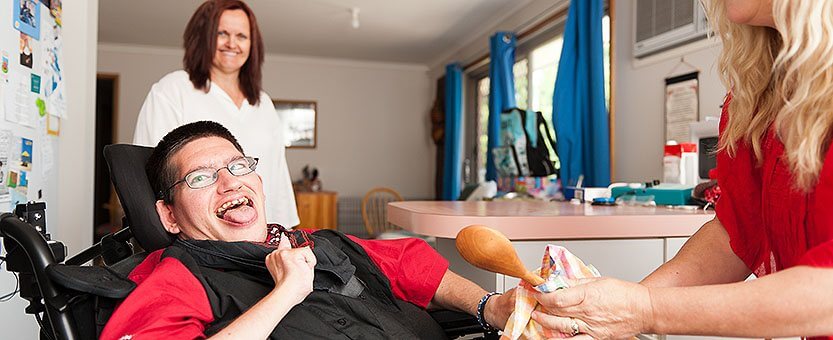The Critical Role Occupational Therapists Play in SDA

Enabling Independence Through Good Design
Working with an Occupational Therapist during the design phase of new Specialist Disability Accommodation (SDA) will ensure optimal outcomes for residents with complex disabilities. While identifying the individual needs of residents with complex disabilities is a specialist skill and needs to be addressed through a formal assessment from an Occupational Therapist, it is evident that as we start to consider the needs of an individual and how their environment can either facilitate or hinder independence, the importance of both health and design professionals working collaboratively with residents to achieve successful outcomes and design quality homes has never been more critical.
As part of the planning process NDIS participants who qualify for SDA are required to provide a statement of goals, objectives and aspirations they wish to pursue within an environmental and personal context. Like us all, participants goals will vary greatly. For people some participating in meal preparation may be important, for others it may be about maintaining a current level of independence, or increasing independence with personal care tasks. Whatever the participant’s goals, it’s important that homes are designed to facilitate the achievement of goals and enable participation in activities that are meaningful and important to residents. This means SDA needs to provide housing solutions that support an individual’s complex needs. In other words, resident’s individual needs must be driving design.

When designing a space to meet the needs of a particular person the relationship between the person, their environment and the activities they undertake, or wish to undertake within their environment must be considered holistically. For example, where a participant identifies one of their goals is to increase their level of involvement in meal preparation a number of factors in relation to the individual’s needs must be considered that will have a direct impact on the design of the kitchen. Such considerations may include suitable heights for joinery and clearances under workspaces to accommodate the person, including provisions for any aids they may use, or whether the resident’s reach range, endurance or cognitive function will impact on the layout of fixtures, fittings and storage facilities. Other considerations may include how the choice of door and tap hardware will impact on the resident’s ability to use and operate independently.
At Equal Access we have Registered Occupational Therapists who are also qualified Access Consultants who understand the complex relationship between people with disabilities and how their needs and level of function can impact the requirements of their environment. Our OT’s work collaboratively with the resident, building designers and building surveyors to ensure that homes are designed to meet the individual needs of residents while also ensuring compliance with all relevant statutory and legislative requirements. We provide expert advice and deliver viable solutions which ensure a customised framework is established early on, avoiding the need for expensive and time-consuming retrofit down the track. If you would like any more information regarding our services or would like to discuss a specific project, feel free to get in touch.
Categories
Recent Posts
- Upgrading an Existing House to Specialist Disability Accommodation
- Why Robust SDA is Failing Participants, Carers and Investors
- The Stupidity of Hybrid Design SDA with Robust
- Introducing the Turtle Tough TV enclosure—the perfect protection for your TV in Robust Specialist Disability Accommodation
- How much money will I earn investing in Desirable SDA Specialist Disability Accommodation?
